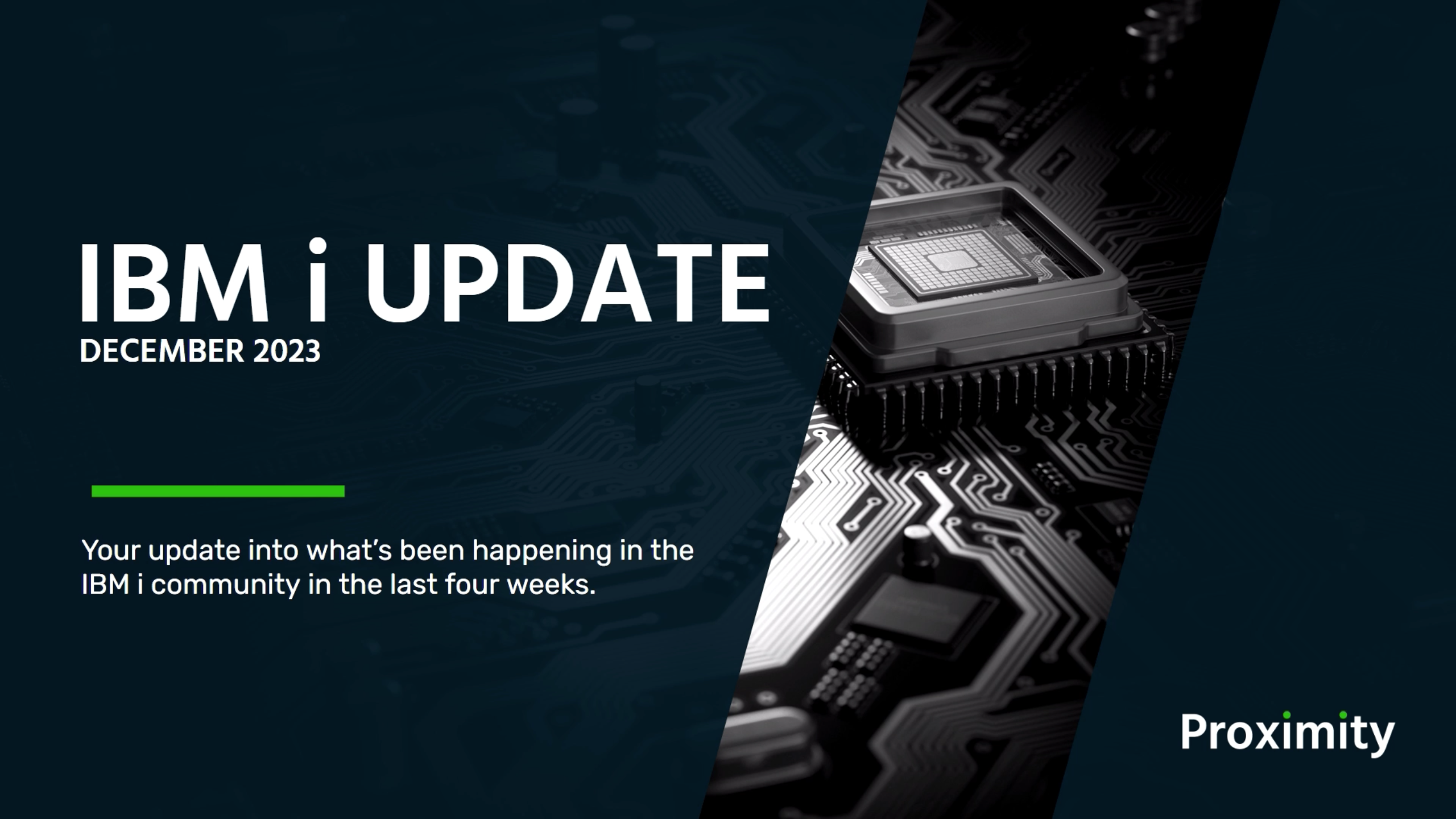
Welcome to your IBM i update for December 2023!
Your monthly update into what’s been happening in the IBM i community with me, Andy Nicholson.
You can watch the video below or read the full article underneath.
Watch the Video:
Full Article:
This month we received the announcement of Alison Butterill’s retirement. An article on the aging ‘COBOL cowboys’ and how to support their legacy of code and finally, as it’s Christmas, festive wishes too!
Alison Butterill Announces Retirement
So, on December 1st the Matriarch of Modern IBM i announced her retirement. A renowned figure in the IBM i community, Alison Butterill served as the worldwide offering manager and played a vital role in bridging the gap between developers and customer.
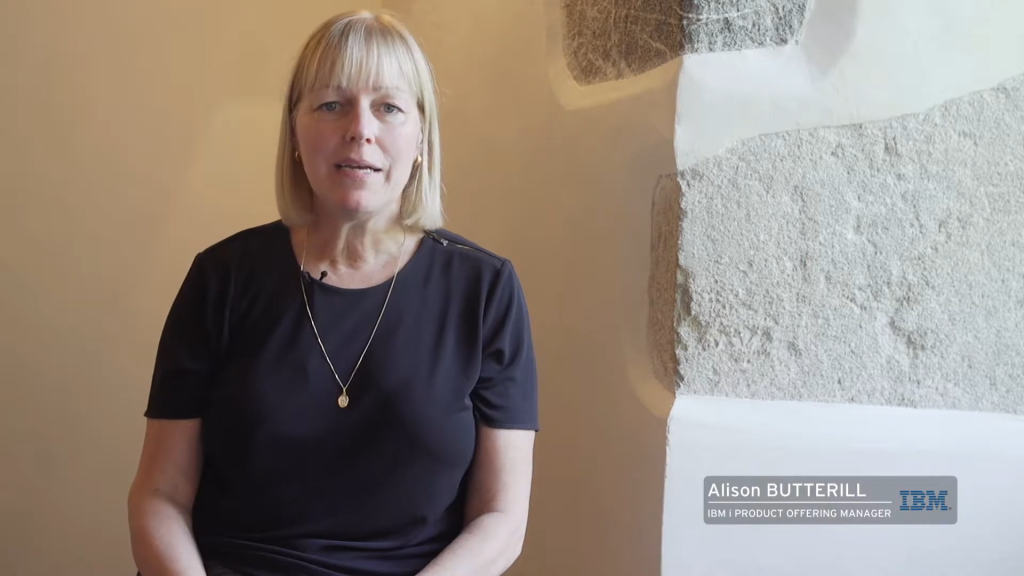
Like most IBM iers of a certain age, she began her career at IBM i on the System 38 but gained notoriety, globetrotting the world on her crusade to evangelise IBM i during her time as IBM i product manager.
Alison was highly respected for her knowledge and commitment to the IBM i, and the announcement earlier this month marks the end of an era.
Alison’s replacement is Douglass Gibbs, American soul singer who charted with the track “I’ll always have you there” in 1972… sorry, what? Ah, pardon me, wrong Mr. Gibbs.
Douglas, a Canadian like Alison before him, has a rich history in IBM with over 24 years at the company.
His last role was as the Power IO Product Manager and before that he headed the Power Systems Performance team.
Douglas brings with him plenty of experience and having stated his role at the beginning of this month, we wish him a great future in supporting the IBM i community.
Coding Caution with the ‘COBOL Cowboys’
At the beginning of month was the publication of a cautionary tale by JD Sartain within PC Mag.
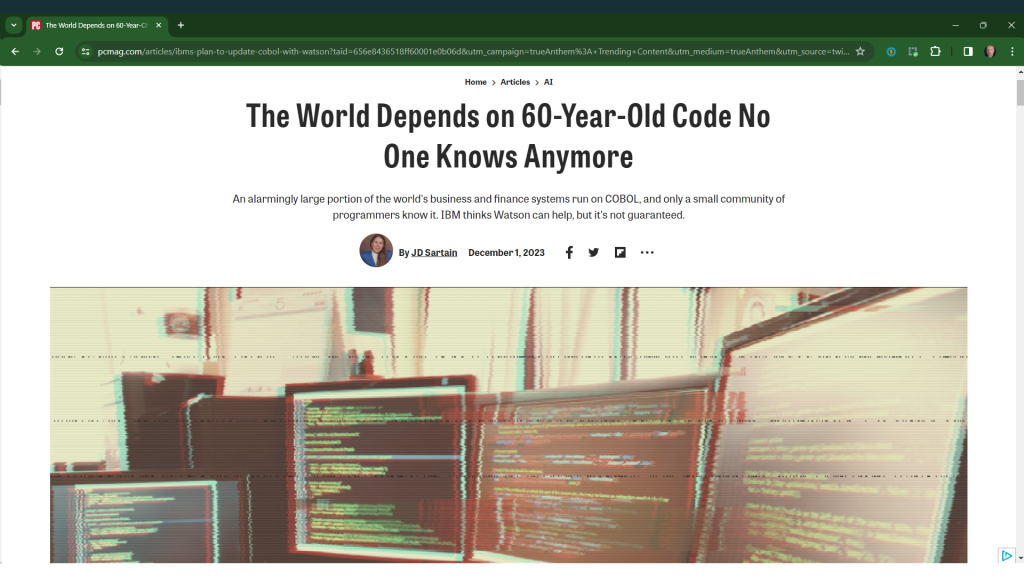
In the article, JD explains that, an alarmingly large portion of the world’s business finance systems are running on a 64-year-old programming language that hardly anybody knows anymore.
That language, is COBOL.
JD started the article by setting the premise, explaining that 43% of all banking system are still using COBOL, which handles $3 trillion dollars worth of transactions every single day, including 95 percent of all ATM activity in the US, and 80 percent of all in-person credit card transactions.
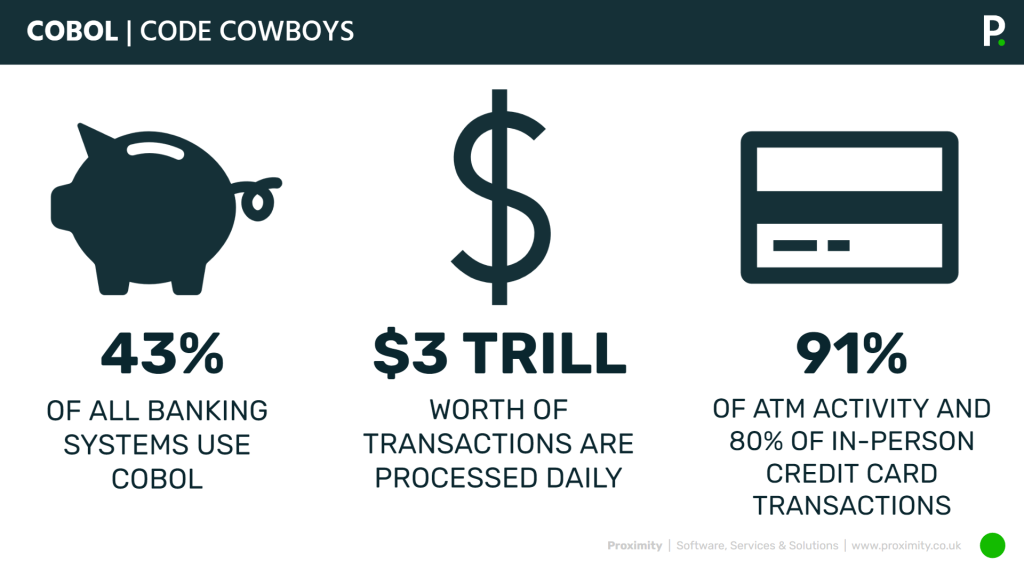
She went onto say that the problem is that, since nobody’s learning COBOL anymore, programmers who can work with and maintain all that code are increasingly hard to find, and many of these “COBOL Cowboys” are aging out of the workforce with replacements are in short supply.
Indeed, looking outside of the article, a study conducted by Lansa confirmed this, suggested that nearly a quarter of active RPG and COBOL developers retired between 2017 and 2020 alone.
Now, The article continues that, as a result, there is a shortfall of application and programming skills in this arena.
The answer? Well, JD suggests that it could be AI, or more specifically, IBM’s very own Watson.
The article goes on to say that, “Rather than relying exclusively on a limited pool of human programmers to solve the problem, a generative AI-powered code assistant (watsonx) could help convert all that dusty old COBOL code to a more modern language, thereby saving coders countless hours of reprogramming.”
Okay in principle, but could AI do this? Would it be useful? And how hard is it to learn COBOL anyway?
I spoke to Andy Cooper, a COBOL developer here at Proximity who, while starting work on the IBM i in 1992, only in the past 18 months, received training in COBOL and now supports such systems.
I started by asking Andy. “ How did you find your transition from RPG to COBOL?”
Andy Cooper: RPG to COBOL was actually very very easy. The way that the structure seems to be more in the old style of RPG. I was used to a structured language where Fields appear in a certain order, so you have to follow the rules so I fitted into that really well.
Andy Nicholson: And do you believe that COBOL is still relevant for the modern IBM i infrastructure?
Andy Cooper: I’d have to say yes, obviously. There are a lot of programs that are written in Cobol and I know people are saying it’s a dying language, but the program’s that are written – work… unless there is a reason that you have to get rid of the hardware that’s running your programs. I can’t see any reason why you’d want to do it.
Andy Nicholson: Do you feel about COBOL is easy to maintain and indeed modernise?
Andy Cooper: If it was well written and commented, then yes.
Andy Nicholson: And what are your thoughts on AI to maintain COBOL?
Andy Cooper: I don’t think it can replace programmers in doing the job, no.
Andy Nicholson: But do you think that robots and coders can work side by side?
Andy Cooper: I think to some degree. Yes. But a lot of it is going to depend on the complexity of your programs. With more complex applications, no programmer is ever going to get anything 100% right so support in those places would be good.
Andy Nicholson: So for a company that’s facing developer shortfall perhaps this is due to retirement or a shrinking supply of Developers. What would your advice be?
Andy Cooper: I believe that there are two real choices. the first choice is taking on a trainee raining them up yourselves… but obviously in this day and age most programmers or most people are looking to learn skills that they believe are relevant. So they’re looking at more to learn the Java or PHP or codes along that sort of line. The other choice is looking at a third party company that can provide the expertise or the assistance to do these coding tasks.
So, as Andy illustrated, AI may have some way to go before becoming the not be the silver bullet that businesses are looking for to reduce risk.
Indeed, the article concludes that there’s ‘No such thing as a sure thing” and suggests that while WatsonX can certainly support the development and ongoing maintenance of COBOL based enterprise, the human touch is still very much needed.
A 2023 report from Gartner suggested that the marriage of AI and humans is the path forward saying that “By 2028, the combination of humans and AI assistants working in tandem could reduce the time to complete coding tasks by 30 percent.”
And if you want to learn more about this, start with the IBM i update from March of this year when I covered Roberto De Pedrini using ChatGPT to create RPG code
Festive Wishes
But for now, that’s it from the IBM i update for 2023.
To get you in the festive mood, I thought I’d share some pictures from the Proximity christmas do, just to show that IBM i-ers still know how to party.
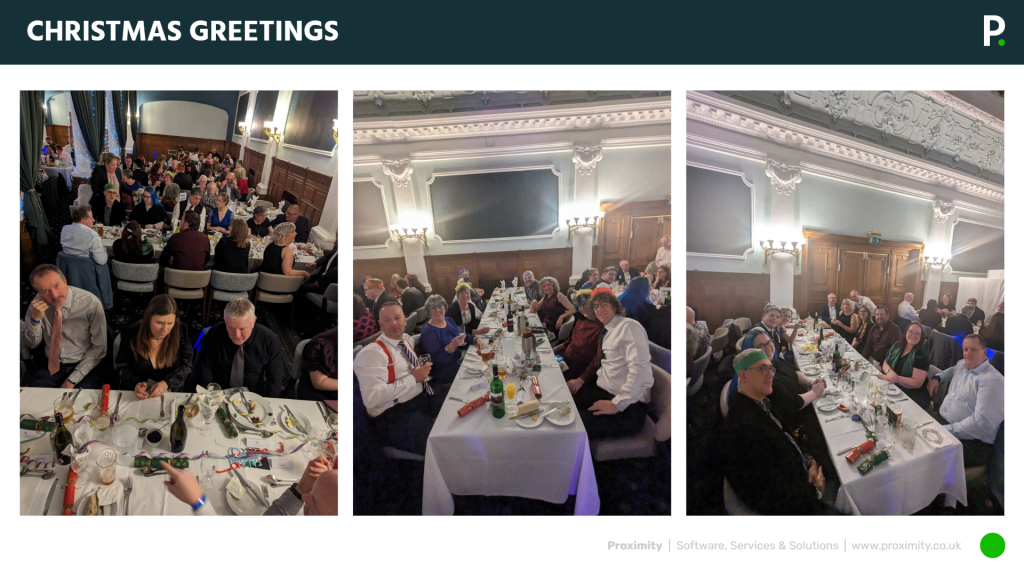
Have a very Merry Christmas and I’ll look forward to bringing you the latest new in the New Year.
All the best.
Catch our previous November IBM i Update here. Alternatively, if you’d like to receive the latest IBM i Update hot off the press to your inbox, subscribe to the newsletter version on LinkedIn here.
Posted by Rob on 21st December 2023.

